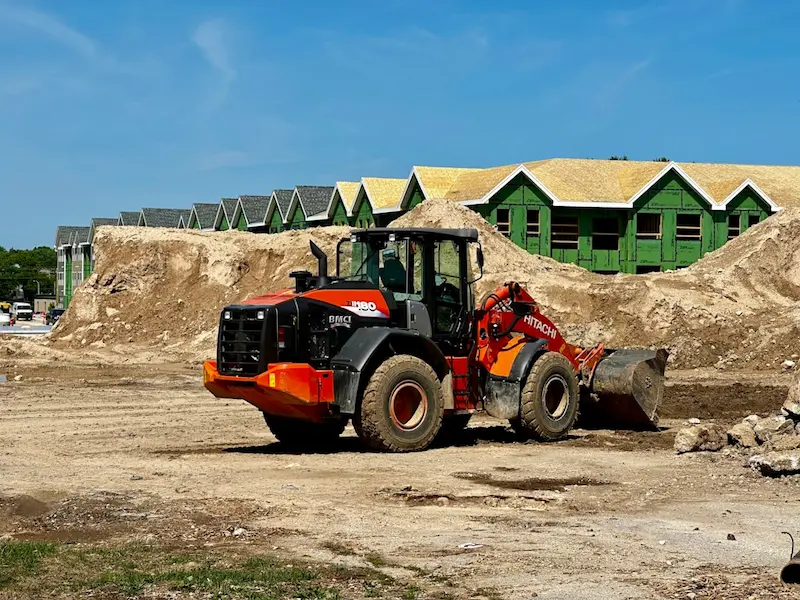Table of Contents
Investing in high-quality construction equipment is not just a choice; it’s a necessity for businesses looking to gain a competitive edge. Construction projects require heavy machinery that can withstand rigorous tasks over extended periods. High-quality equipment enhances productivity and impacts the safety and efficiency of operations.
For construction companies, the reliability of their machinery can mean the difference between meeting deadlines and facing costly delays. Let’s explore the multifaceted business benefits of investing in durable and efficient construction equipment.
Enhanced Efficiency and Productivity
When equipment operates smoothly and efficiently, projects can be completed on time, and companies can take on more work. An excavator designed for optimal performance contributes to faster excavation rates, reducing the overall project timeline. For a high-quality excavator, read more to see the most essential features and request a quote. With increasing demands for quicker turnaround times, having efficient machinery allows construction businesses to stand out in a competitive marketplace.
Aside from improving day-to-day operations, it also fosters a culture of quality and excellence that can resonate with clients seeking reliability. Enhanced efficiency also leads to reduced labor costs, as fewer workers are needed to achieve the same level of output.
Reduced Maintenance Costs
Investing in quality construction equipment often translates to lower maintenance costs over its lifespan. High-quality machinery is built to last and requires fewer repairs than cheaper, lower-quality alternatives. Fewer breakdowns mean less downtime and reliable equipment helps maintain a consistent workflow.
Reliable machinery can increase safety standards on-site, as it is less likely to malfunction compared to poorly made alternatives. Many high-quality machines come with comprehensive warranties and support plans, reducing additional expenses related to repairs and parts. Therefore, construction firms that invest upfront in quality are rewarded with reduced operational costs and enhanced profitability over time.
Increased Safety Standards
Quality construction equipment adheres to stricter safety regulations and protocols, which reduce the risk of accidents on-site. Machines are designed with safety features like emergency shut-offs, stability control, and operator protection systems, promoting safer workplace practices.
Having reliable machinery decreases the chances of accidents stemming from equipment failure, which can be detrimental to a company’s reputation. Employees are more likely to feel valued and secure when they work with high-grade equipment, fostering a positive work environment. The alignment of safety and quality contributes to enhanced worker morale and productivity.
Competitive Advantage
In a crowded market, having superior construction equipment can serve as a competitive advantage. Quality machinery enables construction companies to take on more complex projects that require advanced technology. This capability can differentiate a company from its competitors and position it as a leader in innovation and reliability. Clients are often willing to pay a premium for firms that can deliver results using the latest equipment.
Businesses that consistently deliver on time and within budget by using reliable machinery receive repeat contracts and referrals. A strong reputation for quality work attracts high-profile clients, further solidifying a company’s market position. As the construction landscape grows increasingly competitive, the investment in high-quality equipment becomes a strategic move that can yield long-term benefits. By continuously improving their capability through quality machinery, businesses can ensure sustained growth and prosperity.
Improved Resale Value
High-quality construction equipment maintains its value significantly better than lower-quality alternatives. When it’s time to upgrade or replace machinery, businesses can recoup a substantial portion of their initial investment due to the high resale value. Potential buyers are willing to pay a premium for well-maintained, high-quality equipment from reputable brands. This aspect can improve cash flow while allowing firms to reinvest in newer, more advanced pieces of machinery.
Keeping maintenance records and ensuring regular servicing further add to resale value as it demonstrates the equipment’s reliability and upkeep. Investing in well-known brands offers better resale prospects than lesser-known names in the market. While the upfront investment may appear higher, the long-term financial benefits associated with ownership can be quite favorable.
Impact on Company Reputation

A company’s reputation in the construction industry hinges on delivering quality work consistently. The type of equipment used shapes that reputation. Businesses that utilize high-quality construction equipment are perceived as more professional and reliable.
Employing quality machinery leads to higher levels of client satisfaction, encouraging positive reviews and referrals. Reputation, in this context, can significantly influence a firm’s market share and ability to command higher service rates. Clients increasingly rely on technology and expertise, and companies that invest in high-quality equipment gain an edge in demonstrating their commitment to excellence. Building a sterling reputation through quality machinery attracts clients and retains talented employees who wish to work for a respected firm.
Investing in high-quality construction equipment comes with multiple advantages that profoundly impact operational efficiency, safety, and profitability. From enhancing productivity and reducing maintenance costs to ensuring safer work environments, the implications of such investments are far-reaching.
A robust reputation and competitive advantage highlight the importance of choosing reliability over cost-cutting measures in equipment acquisition. Businesses must weigh the short-term costs against long-term benefits to thrive in a competitive landscape.
Want to explore something different? How Law Firms Can Help You Navigate Complex Business and Corporate Law

